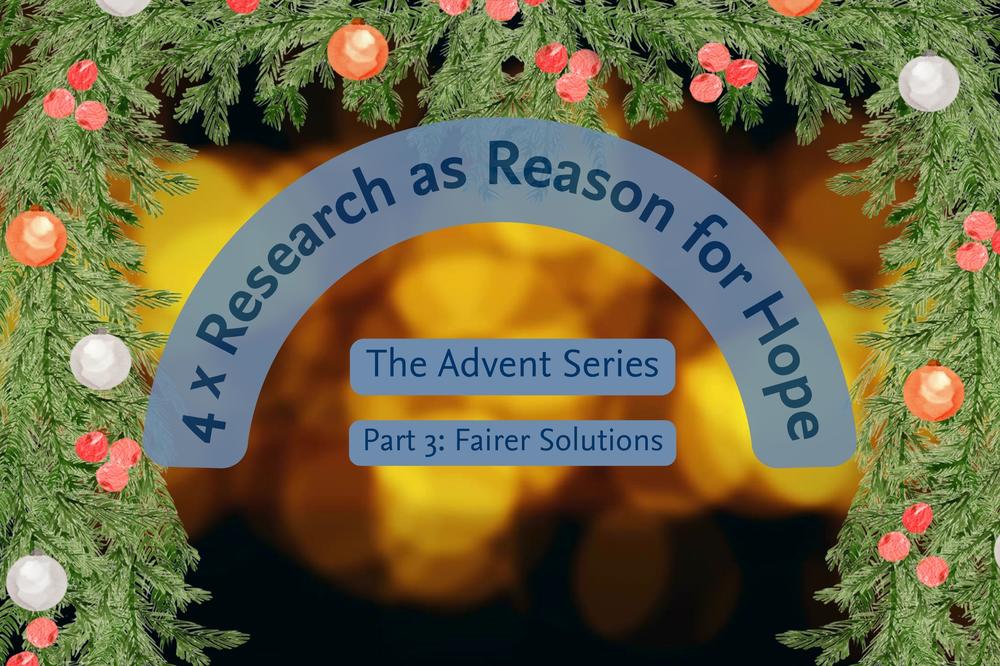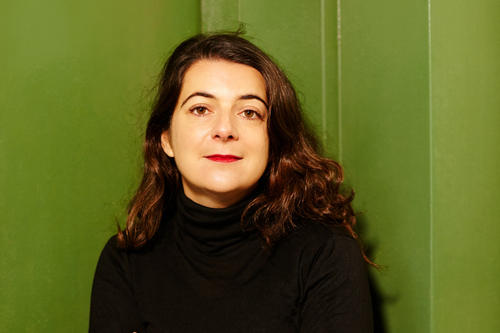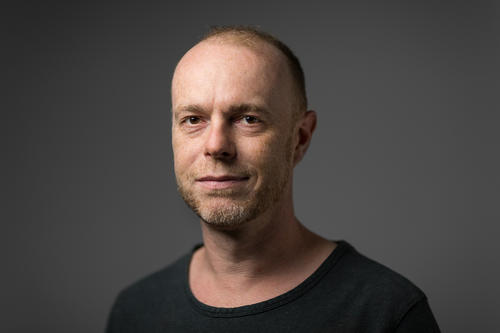“Specific Suggestions for Overcoming Problems”
Part 3 of the Advent Series on Research as Reason for Hope: Plans for Fairer Solutions
Dec 15, 2022
Not everything is as grim as it seems. During the Advent season, we are presenting four research topics that offer reason for hope.
Image Credit: Office of Communication and Marketing
Could a new international economic order lead to a fairer world? Political scientists Dr. Mariam Salehi from Freie Universität Berlin and Dr. Alex Veit from the University of Bremen are investigating this thesis.
Dr. Salehi, Dr. Veit, what project are you currently working on together?
Mariam Salehi: We are planning an anthology, which currently has the working title A Just World Economic Order? Scholars from various disciplines, including conflict research and political science, will address the topic.
Alex Veit: Our project is based on a political plan from the 1970s called the New International Economic Order (NIEO), which was intended to initiate structural reforms in the global economy. At the time the world economic order as it had existed since the end of World War II was in crisis due to a long recession, rising oil prices, and high unemployment, especially in the Global North. In this situation, progressive governments of the Global South, such as Jamaica, Algeria, and Tanzania, recognized that global injustices between industrialized and developing countries could only be overcome by reforming the system.
The crisis situation today is comparable to that in the 1970s, both politically and economically. In our anthology we revisit the ideas that were part of the NIEO concept and show to what degree they could be implemented today, how they could be adapted or supplemented if appropriate.
Political scientist Dr. Mariam Salehi is a researcher at Freie Universität Berlin.
Image Credit: Personal collection
What were the main ideas of the New International Economic Order?
Alex Veit: The NIEO was taken up by the United Nations General Assembly, where it was discussed intensively. Finally, in 1974, the UN General Assembly decided to adopt it. Some parts of it such as reduced tariffs on export products from the Global South or larger funds for development cooperation have actually been implemented. However, the plan as a whole has not succeeded. What remains is the vision of a fairer world economy.
Mariam Salehi: We would like to build on the original concept. It brought forth ideas for a fairer world that we can develop further.
For example, in my chapter I address the demand for reparations in Tunisia. After the revolution, the so-called Arab Spring, a truth commission was set up to deal with the aftermath of dictatorship. This commission has now demanded reparations payments, not just domestically, but also from the former colonial power France and international financial institutions, the World Bank and the International Monetary Fund. With this move the commission established a link between physical violence and economic dominance.
How does that seem hopeful to you?
Mariam Salehi: Recognizing injustice is a very important step toward creating a fairer world. I think it is hopeful that approaches with a certain continuity are being taken up again and further developed. The original NIEO already aimed to compensate for the exploitation caused by colonial and foreign rule.
How hopeful are you that the world will become fairer?
Mariam Salehi:
I would rather say that you should never give up hope, especially in striving for a fairer world. We have received a great deal of positive feedback on the project from our academic colleagues. Many of them want to utilize this opportunity not only to analyze and describe problems, but also to make very specific suggestions as to how they can actually be overcome.
Alex Veit: Personally, I have great hopes. We are currently experiencing multiple crises. Many actors around the world are aware that we cannot continue like this and are thinking about how we can change course, just as we aim to do with our project.
It is exciting that the NIEO initiative originally came from academia. It developed from scholars and scientists concerned about the future along with a spirit of optimism in society. Governments wanted to use these two factors to advance structural economic reform. I am very hopeful that the general conditions are similar today.
Melanie Hansen conducted the interview. It was first published in German in campus.leben on December 9, 2022.



